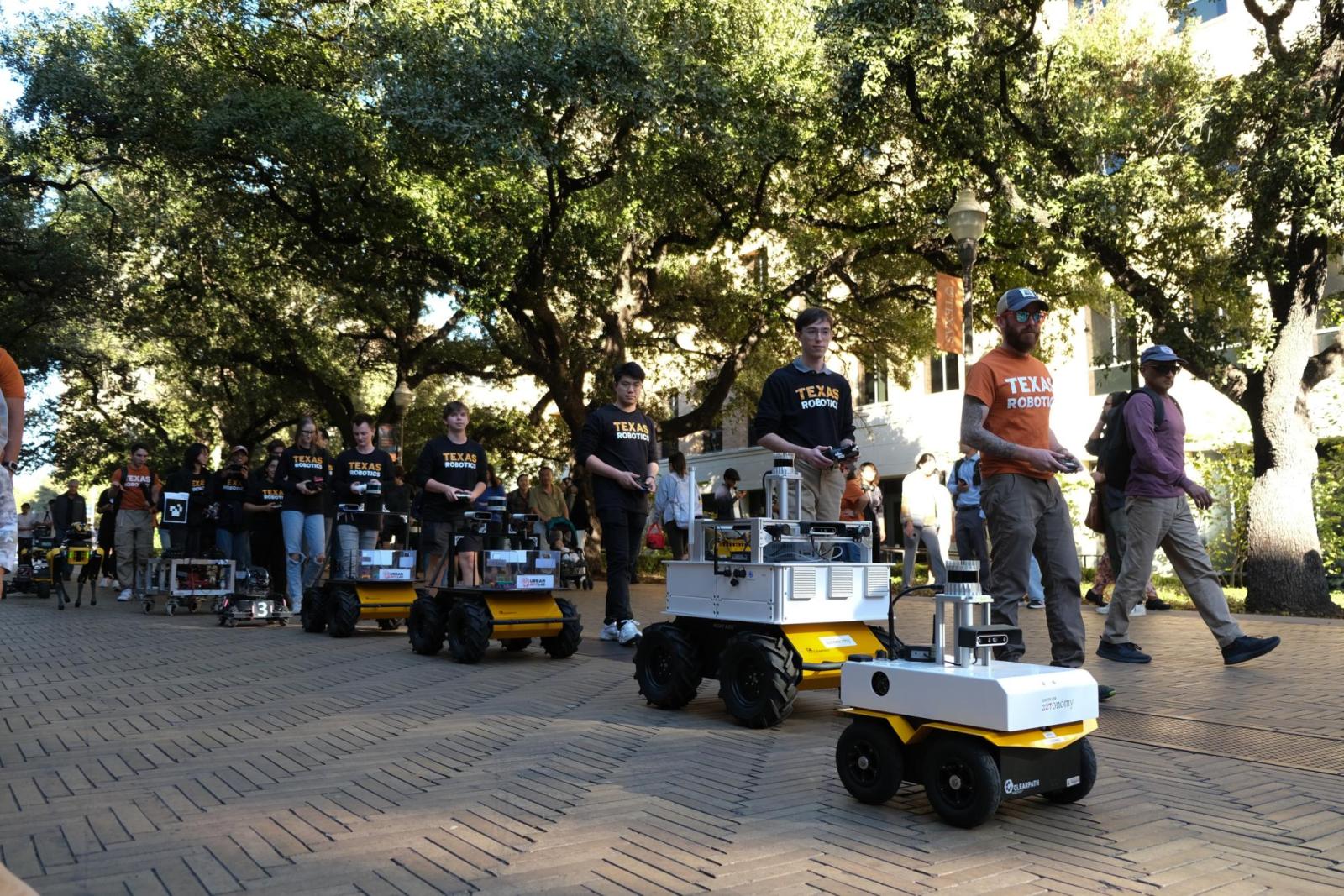Deadline: March 31, 2025
The Realtime Adaption REU (Summer Internship) – NSF Cohort seeks to analyze the use of neural function encoders for real-world autonomous systems subject to challenging environmental characteristics such as irregular terrain surfaces and noisy state estimates. The resulting experiments will test the baseline capability of neural function encoders and their ability to ensure safe, responsive operation in rapidly changing environments requiring real-time adaptability through sensor-driven, in-situ adjustment. Thereby helping build foundations for further research on the fly adaptive control with scarce data.
Eligibility Requirements
Students with a GPA of 3.0 or higher to be considered. Students must be U.S. citizens or have permanent resident status. The hiring process is non-discriminatory.
The undergraduate student will have a background in controls and/or robotics, demonstrating an understanding of programming skills (Linux, python3, ROS) and hardware skills (prototyping, sensor integration).
Internship Information
Dates: June 2 - August 11, 2025
Interns must be able to commit to 392 hours. The application deadline is March 31, 2025.
Support: The internship will provide a stipend paid directly to the intern. Housing will be provided in a UT Austin dorm (undergraduate students only) if needed. There is no application fee.
- Undergraduate Stipend: $9000* (1 position available)
- *If the selected candidate chooses to use on-campus housing and meal plans, the cost will be deducted from their stipend.
Student Role: The REU student will implement and test adaptive control algorithms that use zero-shot transfer techniques, specifically, in the context of legged robotics performing autonomous navigation. The student will gain hands-on experience with legged robotics and theoretical and/or practical experience in adaptive systems, robotics control, and test and evaluation.
The student will deliver two research presentations—one defining their project's 5Ws (Week 2) and another summarizing their completed work (Week 10)—and will prepare a research poster for presentation at the University of Texas at Austin Oden Institute.
Program Context: Real-Time, Data-Efficient Adaptation of Robotic Platform Dynamics in Complex Environments
How can real-world autonomous systems adapt to complex, unpredictable environments in real-time with scarce online data, maintaining safe and effective performance without extensive retraining?
Dynamical systems operating in complex environments often encounter novel environmental changes requiring fast adaption in previously learned system dynamics models to obtain mission success. Traditional models require offline retraining to adjust to these shifts, limiting system uptime. In comparison, recent advances enable on-the-fly adjustment based on incoming sensor data without needing gradient updates. This enables systems to identify and integrate dynamic changes in real-time by leveraging pre-trained basis functions to characterize new conditions efficiently.
However, resulting techniques have not explicitly considered the context of real-world robotic systems with challenging environmental characteristics such as irregular terrain surfaces and noisy state estimates. This project seeks to extend earlier works by analyzing the use of neural function encoders for real-world autonomous systems subject to such characteristics. The resulting experiments will test the baseline capability of neural function encoders and their ability to ensure safe, responsive operation in rapidly changing environments requiring real-time adaptability through sensor-driven, in-situ adjustment.
Program Contact: For questions regarding this program, please contact: meredith.albers@austin.utexas.edu
How to Apply
Please complete NSF's Education & Training (ETAP) application:
https://etap.nsf.gov/award/7695/opportunity/10568
